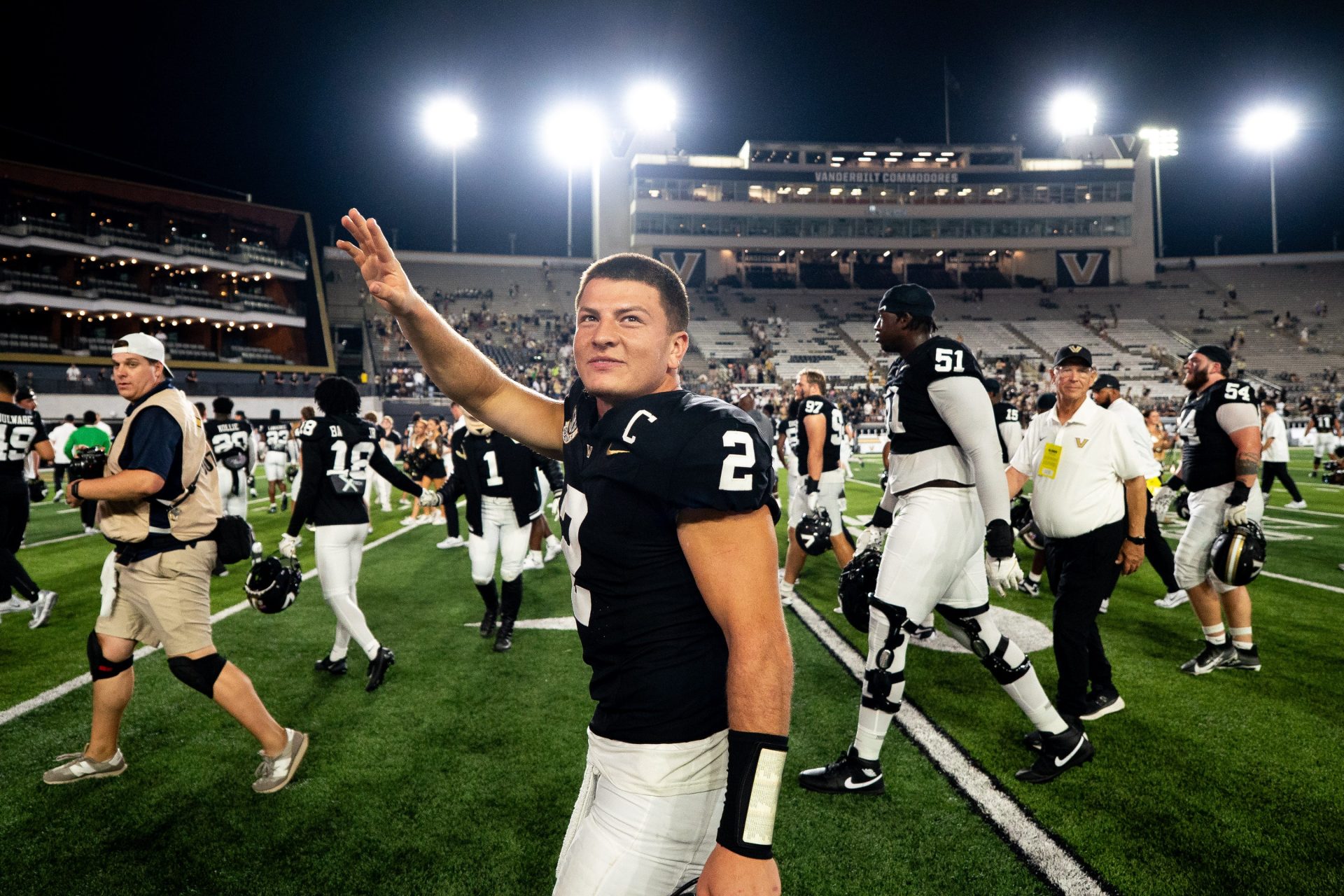Just a few years ago, the Vanderbilt Commodores were considered the laughingstock of the SEC. But now, they’re winning big with a 4-0 record, a No. 18 AP ranking, and a potential Heisman Trophy candidate in quarterback Diego Pavia.
That’s thanks in part to a landmark lawsuit filed by Pavia last year challenging NCAA eligibility rules that would have barred him taking the field this season. The lawsuit set off a firestorm of cases against the NCAA, and could ultimately sink the governing body’s ability to enforce any eligibility rules. Among the other lawsuits: a class action filed by 10 current and former NCAA D-I athletes—led by two of Pavia’s teammates: senior linebacker Langston Patterson and senior defensive lineman Issa Ouattara.
Pavia’s career began in 2020 at a junior college called the New Mexico Military Institute. After two seasons, he transferred to New Mexico State in 2022, and then to Vanderbilt last fall. He put his name on the map after the Commodores beat Alabama in October. The Commodores finished with a 7-6 record but had already made history: Their first AP Top 25 ranking in more than a decade.
Pavia sued the NCAA in November 2024 in order to gain an extra year of eligibility. The NCAA allows players to complete four full seasons within a span of five years but counts junior college. Pavia argued the NCAA’s rules violate antitrust law—especially in the NIL (name, image, and likeness) era when player earnings depend on eligibility.
Federal judge William Campbell quickly granted Pavia his request through a preliminary injunction—which is why Pavia is playing for Vanderbilt this year. The NCAA followed up with a one-year blanket waiver for all former junior college players to have one more year of eligibility during this season.
Pavia started a trend. During the offseason, more than 30 lawsuits challenging various aspects of the NCAA’s eligibility rules were filed across the country, drawing conflicting rulings and warranting multiple appeals.
Pavia’s senior teammates, Patterson and Ouattara are in the midst of challenging the redshirt rule with their own class-action lawsuit filed earlier this month. The lawsuit argues that players should be able to complete five full years within the five-year window, rather than four, and not have to “redshirt” during one of those years—which includes practicing with the team but not being eligible for games.
Those lawsuits are ongoing, as is Pavia’s. Last week, a panel of appellate judges heard oral arguments for an appeal in his case, though no decision was handed down from the bench. (During the arguments, Pavia’s attorney even threatened to add a challenge to the NCAA’s “redshirt rule” to get Pavia yet another year of eligibility. Pavia later posted on X saying he was not seeking another year of eligibility.)
Meanwhile, the Commodores have gone undefeated this season—notching multiple blowout wins and a decisive victory against No. 11 South Carolina in Week 3, which knocked the Gamecocks off the AP Top 25 entirely. Their current No. 18 ranking is their highest since 2008.
The Commodores face a slew of difficult opponents starting in October: They’ll face off against No. 18 Alabama on Oct. 4 and No. 4 LSU on Oct 18 as they hope to continue winning on the football field and in federal court.







![[Subscription Customers Only] Jun 15, 2025; Seattle, Washington, USA; Botafogo owner John Textor inside the stadium before the match during a group stage match of the 2025 FIFA Club World Cup at Lumen Field.](https://frontofficesports.com/wp-content/uploads/2026/02/USATSI_26465842_168416386_lowres-scaled.jpg?quality=100&w=1024)
![[Subscription Customers Only] Jul 13, 2025; East Rutherford, New Jersey, USA; Chelsea FC midfielder Cole Palmer (10) celebrates winning the final of the 2025 FIFA Club World Cup at MetLife Stadium](https://frontofficesports.com/wp-content/uploads/2026/02/USATSI_26636703-scaled-e1770932227605.jpg?quality=100&w=1024)








